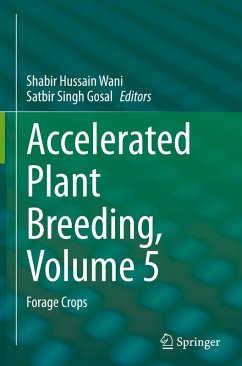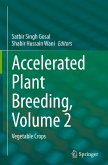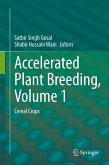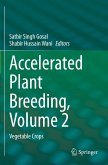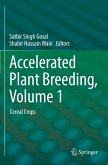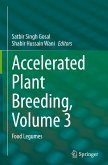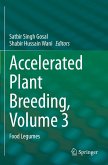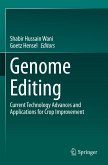Human population growth and potentially irreversible climate changes have raised worldwide concerns regarding food and nutritional security. Plant breeding that once considered art and science for changing and improving the characteristics of plants is now heavily dependent on biotechnologies. The endeavor is a continuous process which results in new varieties required by farmers to improve their crop yields and quality of the produce. On the other hand, in the current scenarios of challenging environmental impact, there is emergence of new insect-pests and new pathotypes of disease causing agents. Accordingly what used to be minor insect-pests/pathogens are rapidly becoming major biotic stress factors. Along with heat and drought, they pose serious threats to crop productivity in many parts of the world. Current WTO analysis reveals that farmers want new high yielding varieties suitable not only for local consumption but also for commercial export. Conventional breedingapproaches at this juncture seem inadequate to meet the growing demand for superior varieties. Efficiency improvement of existing cultivars is one way to meet these challenges. Historically, plant improvement has been largely confined to improving yield, quality, resistance to diseases and insect-pests and tolerance to abiotic stresses. Now growers demand high yielding varieties that possess early maturity, higher harvest index, dual purpose forages, varieties with nutrient-use efficiency/water-use efficiency, wider adaptability, suitable for mechanized harvesting, better shelf life, better processing quality, with improved minerals, vitamins, amino acids, proteins, antioxidants and bioactive compounds. Conventional plant breeding methods aiming at the improvement of a self-pollinating crop, such as wheat, usually take 10-12 years to develop and release of the new variety. During the past 10 years, significant advances have been made and accelerated methods have been developed for precision breeding and early release of crop varieties.
This multi-volume work summarizes concepts dealing with germplasm enhancement and development of improved varieties based on innovative methodologies that include recent omics approaches, marker assisted selection, marker assisted background selection, genome wide association studies, next generation sequencing, genetic mapping, genomic selection, high-throughput genotyping, high-throughput phenotyping, mutation breeding, reverse breeding, transgenic breeding, speed breeding, genome editing, etc. It is an important reference with special focus on accelerated development of improved forage crop varieties.
This multi-volume work summarizes concepts dealing with germplasm enhancement and development of improved varieties based on innovative methodologies that include recent omics approaches, marker assisted selection, marker assisted background selection, genome wide association studies, next generation sequencing, genetic mapping, genomic selection, high-throughput genotyping, high-throughput phenotyping, mutation breeding, reverse breeding, transgenic breeding, speed breeding, genome editing, etc. It is an important reference with special focus on accelerated development of improved forage crop varieties.

